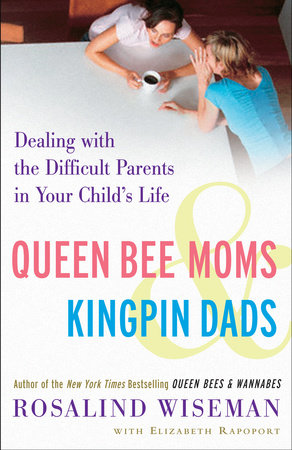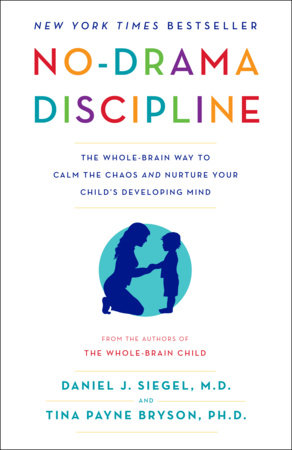The Empower Program Rosalind Wiseman
Posted on by admin
The Empower Program Rosalind Wiseman Average ratng: 10,0/10 3914 votes

- Rosalind Wiseman Website
- Rosalind Wiseman Mean Girls
- The Empower Program Rosalind Wiseman And Associates
Empower young people to stand up for what matters. Created in collaboration with children and teens, Owning Up Curriculum helps young people identify and be critical of social issues in their lives―from bullying and harassment in the classroom to systems of power and oppression in the world around them.
Rosalind Wiseman Website
What happens to Queen Bees and Wannabes when they grow up? Even the most well-adjusted moms and dads can experience peer pressure and conflicts with other adults that make them act like they're back in seventh grade. In Queen Bee Moms & Kingpin Dads, Rosalind Wiseman gives us the tools to handle difficult situations involving teachers and other parents with grace. Reassuring, funny, and unfailingly honest, Wiseman reveals: - Why PTA meetings and Back-to-School nights tap into parents' deepest insecurities - How to recognize the archetypal moms and dads--from Caveman Dad to Hovercraft Mom - How and when to step in and step out of your child's conflicts with other children, parents, teachers, or coaches - How to interpret the code phrases other parents use to avoid (or provoke) confrontation - Why too many well-meaning dads sit on the sidelines, and how vital it is that they step up to the plate - What to do and say when the playing field becomes an arena for people to bully and dominate other kids and adults - How to have respectful yet honest conversations with other parents about sex and drugs when your values are in conflict - How the way you handle parties, risky behavior, and academic performance affects your child - How unspoken assumptions about race, religion, and other hot-button subjects sabotage parents' ability to work together Queen Bee Moms & Kingpin Dads is filled with the kind of true stories that made Wiseman's New York Times bestselling book Queen Bees & Wannabes impossible to put down. There are tales of hardworking parents with whom any of us can identify, along with tales of outrageously bad parents--the kind we all have to reckon with. For instance, what do you do when parents donate a large sum of money to a school and their child is promptly transferred into the honors program-while your son with better grades doesn't make the cut? What about the mother who helps her daughter compose poison-pen e-mails to yours? And what do you say to the parent-coach who screams at your child when the team is losing? Wiseman offers practical advice on avoiding the most common parenting 'land mines' and useful scripts to help you navigate difficult but necessary conversations. Queen Bee Moms & Kingpin Dads is essential reading for parents today. It offers us the tools to become wiser, more relaxed parents-and the inspiration to speak out, act according to our values, show humility, and set the kind of example that will make a real difference in our children's lives. Also available as a Random House AudioBook and as an eBook
show more
show more
Rosalind Wiseman Mean Girls


The Empower Program Rosalind Wiseman And Associates
The Owning Up Curriculum , written and developed by Rosalind Wiseman, author of The New York Times bestseller Queen Bees and Wannabes , provides a structured program for teaching students to own up and take responsibility--as perpetrators, bystanders, and targets--for unethical behavior. The curriculum is designed for adolescent groups in schools and other settings. The Owning Up Curriculum presents a unique and comprehensive approach to preventing youth violence by targeting the root causes of bullying and other forms of social cruelty. It exposes the cultural expectations that teach young people to humiliate and dehumanize others as the way to achieve power and respect, then challenges them to transform this dynamic. The program also addresses the nuanced ways in which racism, classism, and homophobia are expressed in our culture and affect social cruelty and violence. Separate sessions for girls and for boys combine group discussions, games, role-playing, and other activities to engage students in understanding the complexities of adolescent social culture.
Students learn to recognize that they have a responsibility to treat themselves and others with dignity and to speak out against social cruelty and injustice. A CD of reproducible program forms and student handouts is included with the curriculum. Sessions for Girls and for Boys: The author provides separate sequences of sessions for girls and for boys, each consisting of a total of 17 sessions. These sessions are designed to help students achieve the following specific objectives: Identify and discuss behaviors and attitudes associated with groups, popularity, trust, exclusion, and bullying. Understand anger and how it can influence behavior and learn a strategy to enable them to communicate when angry. Develop a plan of action when a friend or group demeans you or someone else. Recognize the influence of popular culture on individuals' behavior and decision making. Examine how a boy's or girl's self-image affects behavior and attitudes toward others. Develop an understanding of how culture affects interactions between boys and girls and learn skills for communicating effectively. Understand the concept of reputations and the challenges in staying away from gossip.
Define cyberbullying, understand its impact, and brainstorm solutions. Define sexual harassment, recognize and respect boundaries, and become aware of policies relating to sexual harassment. Promote understanding of the differences between healthy and abusive relationships. Identify and strengthen support networks and personal standards of dignity. The SEAL Strategy: SEAL, one of the fundamental skills taught in this curriculum, is a strategy to empower people in conflict and other difficult situations in their everyday lives. The four-step SEAL process is often practiced during sessions in role-play situations. Stop--Breathe, observe, and ask yourself what the conflict is about. Decide when and where you can talk to the person so the person will be most likely to listen to you. Explain--Take your bad feelings and put them into words, be specific about what you don't like and what you want instead. Think about what you are feeling and what you want first so that you can then tell the other person. Affirm and Acknowledge--Affirm your right (and the other person's right) to interact with people without being ridiculed, dismissed, or harmed.
If appropriate, acknowledge your part in contributing to the conflict. Lock in the friendship: Decide to resolve the conflict and continue being friends. Lock out the friendship: Decide that you can't be friends and want no further contact with the person. Take a vacation: Decide to take a break from the friendship but agree to talk later about reestablishing it.
show more
Students learn to recognize that they have a responsibility to treat themselves and others with dignity and to speak out against social cruelty and injustice. A CD of reproducible program forms and student handouts is included with the curriculum. Sessions for Girls and for Boys: The author provides separate sequences of sessions for girls and for boys, each consisting of a total of 17 sessions. These sessions are designed to help students achieve the following specific objectives: Identify and discuss behaviors and attitudes associated with groups, popularity, trust, exclusion, and bullying. Understand anger and how it can influence behavior and learn a strategy to enable them to communicate when angry. Develop a plan of action when a friend or group demeans you or someone else. Recognize the influence of popular culture on individuals' behavior and decision making. Examine how a boy's or girl's self-image affects behavior and attitudes toward others. Develop an understanding of how culture affects interactions between boys and girls and learn skills for communicating effectively. Understand the concept of reputations and the challenges in staying away from gossip.
Define cyberbullying, understand its impact, and brainstorm solutions. Define sexual harassment, recognize and respect boundaries, and become aware of policies relating to sexual harassment. Promote understanding of the differences between healthy and abusive relationships. Identify and strengthen support networks and personal standards of dignity. The SEAL Strategy: SEAL, one of the fundamental skills taught in this curriculum, is a strategy to empower people in conflict and other difficult situations in their everyday lives. The four-step SEAL process is often practiced during sessions in role-play situations. Stop--Breathe, observe, and ask yourself what the conflict is about. Decide when and where you can talk to the person so the person will be most likely to listen to you. Explain--Take your bad feelings and put them into words, be specific about what you don't like and what you want instead. Think about what you are feeling and what you want first so that you can then tell the other person. Affirm and Acknowledge--Affirm your right (and the other person's right) to interact with people without being ridiculed, dismissed, or harmed.
If appropriate, acknowledge your part in contributing to the conflict. Lock in the friendship: Decide to resolve the conflict and continue being friends. Lock out the friendship: Decide that you can't be friends and want no further contact with the person. Take a vacation: Decide to take a break from the friendship but agree to talk later about reestablishing it.
show more



